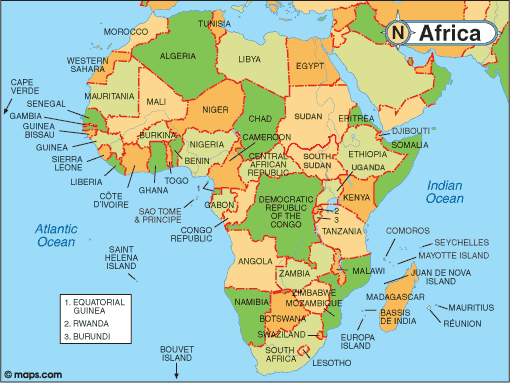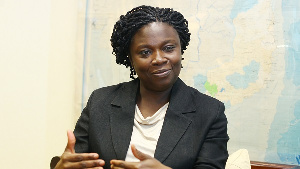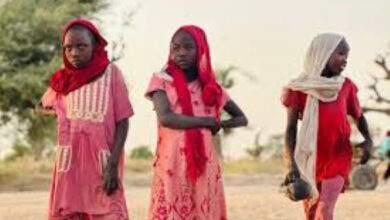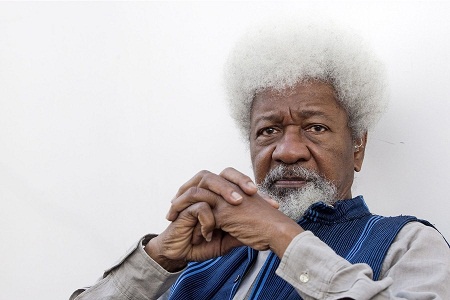Geopolitical Changes and its Influence on Russia-Africa Relations

In this insightful interview, The Press Media’s Russian representative Kestér Kenn Klomegâh this November talked at considerable length with Dr. Israel Nyaburi Nyadera, Faculty of Arts and Social Sciences at the Egerton University in the Republic of Kenya and Expert at the Valdai Discussion Club, over aspects of the current geopolitical changes in relation with Africa, and the existing relationship between Russia and Africa.
Here are the interview excerpts:
What are the implications when Russia is looking for its Soviet-era allies and “non-Western friends” support for creating a new world order? Is the world being partitioned similar to East-West, during the Soviet days?
Efforts by Moscow to expand their sphere of influence is informed by both its national interests and a changing international environment that is seen as paving way for the formation of new alliances and partnerships.
Non-western States are perhaps an ideal starting point for Russia in these renewed efforts, however given the new dynamics within the international system, there are low chances for a clear East-West divide since there are new actors and players competing at the same time for attention in non-western countries. So the field is crowded with emerging powers able to offer and counter -offer similar or whatever higher prospects for the developing countries.
The Soviet Union, of course, enormously supported Africa’s liberation struggle to attain political independence in the 60s. What could be the best practical way for Russia to fight what it often refers to as “neo-colonialism” in Africa?
First there is a strong need to distinguish what neo-colonialism, its scope is in and impact on Africa from other domestic, institutional, political and social dynamics that exist within African states and have similar consequences as neo-colonialism. Once such distinction is made, then we can see whether it is neo-colonialism that urgently needs to be addressed or these domestic issues or perhaps even whether both need to be addressed at the same time.
The point here is that more than half a century after independence, African countries have shown mixed prospects with some doing far much better than the other countries within the continent therefore, one needs to reflect on what is being done to change the fortunes in some countries that are not happening in others. In my opinion, Russia could focus its attention on more sustainable collaboration such as in the field of education, energy, health and governance, Africans can handle the rest since it is not the first time, and they are encountering colonial or neo-colonial tendencies. Yet in the past, they won the colonial battle and that should not be taken away from Africans.
African countries currently need investment to transform the untapped resources in building infrastructure and to industrialize – these are necessary for the African Continental Free Trade Area (AfCFTA). How would you evaluate Russia’s role in these aspects, at least, during the past few years in Africa?
Russia has increased its investments in the continent but unlike the
Chinese, the level and scope of those investments can still be extended.
Especially in the area of petroleum and energy where Russia has incredible success and experience. What happens is as time goes by and global standards and nature of infrastructure increases, the more investment will be needed in Africa. For example, the growing space of e-commerce, information and communication technologies, the role of artificial intelligence and emerging concept of smart cities means that only one country may not help Africa meet its demands for modern infrastructure, therefore Russia can be a strong partner among other players who the continent needs to work with closely.
Generally, how can we interpret the African elite’s feeling about “Russia’s return to Africa” after the Soviet collapse? Do you think Russia is critical about the United States and European Union’s hegemony in Africa?
The main driver of African leaders is interest, whether their own elite interests or their national interests, it will be simplistic to overlook the African elite agency in events happening in the continent and with that I think their feeling towards Russia is informed by how much they think their association with Russia could fulfil their own or country’s interests.
This explains the fluctuating level of cooperation between Russia and different African states with some having stronger relations than others. As for the dominance of Europe and the United States in Africa, such hegemonic control by the US and Europe can be seen in other continents such as US influence in Europe, Asia, Middle East and Latin America. The simple question is how important is Africa for Russia, compared to other continents where the US hegemony is also visible. If Africa is seen as a strategic region for Russia, then Moscow would be critical of the presence of the US and EU states.
What are your views about Russia’s outreach diplomacy with Africa? The diplomatic outreach of Russia in Africa is very beneficial to the continent since it offers new avenues for collaboration and partnerships.
It also gives alternative options and dilutes the monopoly of any country in the continent. But given the entry of other emerging powers in the continent, the competition is much higher than two decades ago.
How would you evaluate Russia’s engagement in sustainable development in Africa?
The current focus of Russia in Africa including in education, agriculture and energy can have a positive impact on the sustainable development of the continent. However, the investment gap and demand is still too wide to realize the sustainable aspect of these engagements. Which calls for African countries to be creative and innovative to supplement the external support.
And its support for security in the continent, especially French-speaking African countries?
The security support for some African countries is largely a national decision. Countries especially in the French speaking West Africa region have tried western-led security initiatives and seem ineffective.
Looking for alternative security partners is only a strategic decision but will also be pegged on whether this new security support will achieve the intended objectives.
Geopolitical confrontation, rivalry and competition in Africa. Do you think there is already geopolitical rivalry and confrontation in Africa? And what if China and Russia team up together in Africa?
Geopolitical confrontations are happening all over the world. Some of the emerging powers have become way more powerful than their peer competitors and feel they can challenge American hegemony in different parts of the world, therefore geopolitical confrontations are ongoing.
Importantly, we should not focus only on the great power politics but monumental changes such as the admission of DR Congo into the East
The African Community is likely to impact the continent’s balance of power at the sub-continental level.
In a brief summary, what should be the African Union’s and African leaders’ approach to the issues you have discussed above?
Well given the fact that most African countries are more than half a century old, it is becoming very difficult to peg the future of the continent on external actors. While these external actors are crucial in helping the continent improve its competitiveness, continental, sub-continental and national responsibility needs to be taken up. It is time that accountability for the relentless sweat and taxes by Africans as well as profits from their resources start to count.
Even more, the African Union and African leaders must understand that increasingly, competition is not based on one’s ability to produce natural, primary resources but on how to utilize those resources, including human capital, to produce final products that can fetch competitive sums at the international level. One of the ways to achieve these goals is to learn from others, therefore relations between the continent and external Countries including Russia needs to be crafted around the above goals.
Source: Thepressradio.com| Kestér Kenn Klomegâh





